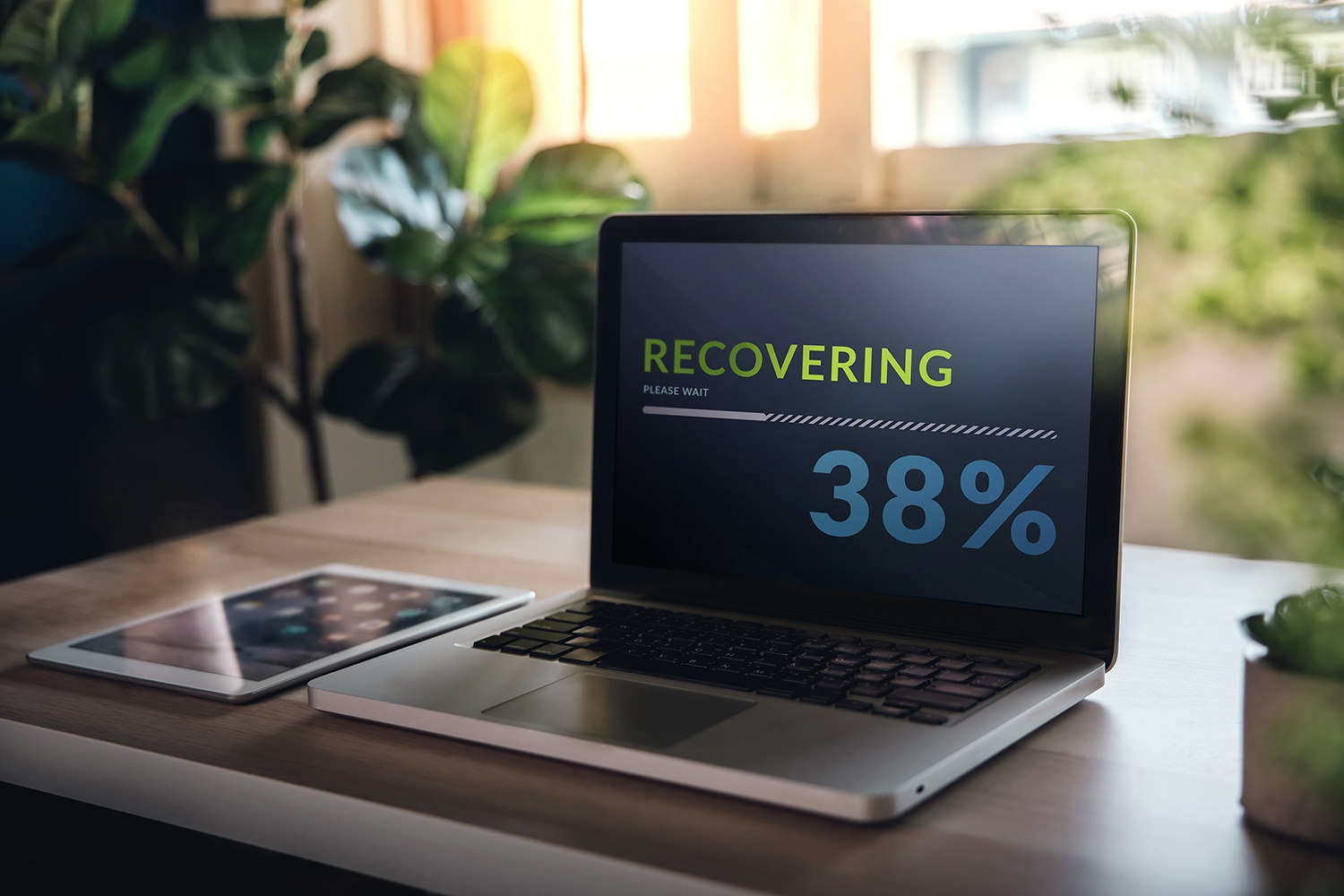
No one wants to think about disaster striking. It’s enough to set off a panic attack, particularly in the current global climate. But when it comes to your business, thinking about disasters is a necessity that you need to face. In particular, you need to think about the advantages of disaster recovery plan stategising for your company.
What is a Data Disaster?
Disasters can come in many forms for a business, but one of the most common is a data disaster. It could be caused by something as innocuous as a power outage, or as malicious as a cyber attack. But the result is the same. Your company’s information becomes corrupted, or is no longer available. Your operations grind to a halt as you search for a solution that will bring you back online.
But what if you could plan ahead? What if you could ensure that your business is covered for any eventuality. That even when disaster strikes, operations can continue as normal. This is where the advantage of Disaster Recovery Plans come in.
What Does a Disaster Recovery Plan Involve?
A good disaster recovery solution is multi-faceted, covering all aspects of your business. It documents:
- Technology that you have in place for ensuring that your information is backed up, and quickly and easily recovered
- Priorities for data recovery. This ensures that the most essential aspects of your operations are brought back online as quickly as possible. Less important data is recovered in the background
- Roles assigned to your team members that ensure that the recovery is efficient and effective
- Steps for communicating with your clients. You want to ensure that they remain informed, but that their minds are put at ease
Advantages of a Disaster Recovery Plan
There can be nothing worse than having a disaster strike when you aren’t prepared. The result is utter chaos that has lasting effects on businesses beyond the time that it takes to come back online. From the heavy costs involved in last-minute restorations, to penalties that may be due if personal information becomes compromised, to the impact that a disaster can have on both your reputation and your productivity. It’s clear that putting a plan in place to curb the effect of disaster is essential for any business.
Here are just 5 advantages of a disaster recovery plan that your business could be benefitting from:
1. Continuity
Every minute that your operations are offline is detrimental to your business. It increases the costs incurred and can cause irreparable damage to your reputation. Not to mention the impact it can have on your teams’ productivity as they struggle to access the tools they need to do their work.
Having a disaster recovery plan in place, with your data backed up and recoverable in the cloud, will mean that even when a data disaster strikes, your business operations will be able to continue. Often entirely uninterrupted.
2. Enhanced Security
Ransomware attacks are on the rise every year. Businesses who are ill prepared for a data disaster are often forced to pay millions of Rands in compensation to criminals in order to retain their information.
Incorporating data backup and restore policies into your disaster recovery plan can ensure that even if your business does fall victim to a ransomware or malware attack, the impact is limited. Don’t let your data held at ransom. You can simply restore a backup of your information that is not at risk of being compromised, making criminal efforts moot.
Plus, cloud backup services themselves include enhanced security features. These can not only detect unauthorised access, but can help you stop suspicious activity before it can have an impact for your business.
3. Customer Retention
If your customers cannot trust you to keep their personal information secure, why should they trust in your services?
Whenever a data disaster strikes, customers become wary. They start to question the way in which your data was being stored and how reliable your company’s practices and services really are. The longer the disaster impacts your operations, the more frustrated your client base will become. After all, people can excuse a momentary lapse in service. But when your services are offline for hours or days on end, the reputation that you have spent years building up can quickly crumble.
One of the many advantages of a disaster recovery plan is that you can ensure your teams are well-equipped to handle client questions. Keep your customers are up-to-date on the situation, and show that you are well prepared even in the face of disaster. The right disaster recovery plan can not only see you maintaining your well-earned reputation. It can even boosting it if handled correctly! You can set a great example that other companies should live up to.
4. Cost Efficiency
Data disasters can be extremely costly affairs. Between ransoms that are being demanded, penalties that can be incurred when personal information becomes compromised, loss of income and of productivity, a single data disaster has the potential to force company closure.
Having a disaster recovery plan in place can see you avoiding each of these costly effects. It can even impact your bottom line in a positive way when business is operating as normal! Backing data up to the cloud using a service like Microsoft 365 Backup, rather than to on-premises disks or servers, can see you reducing your operating costs significantly. For example, cloud storage solutions are more cost effective to both run and maintain than their in-office counterparts. And this is just one of the cost benefits of disaster recovery plans.
When working with an external team to put a disaster recovery plan in place, there’s even further room for cost-efficiency. Your internal teams will be able to put their time to more effective use, while an external company will monitor, manage and maintain your data.
5. Increased Productivity
A disaster recovery plan can keep your data accessible and available even when disaster strikes. But just having a plan in place can improve productivity as well!
Ensuring that your teams know their roles in keeping your data secure, and know precisely how to respond when an attack occurs, will reduce the risk posed to your information. It will even improve efficiency all around. After all, one of the advantages of a disaster recovery plan is that your employees have steps to follow that will reduce the sense of panic that is bound to erupt when a disaster crops up. Instead they’ll handle the situation calmly and effectively.
No one wants to think about disaster striking, but in the world we live in, with cyberthreats increasing on a daily basis, it is something that businesses need to seriously consider. The advantages of disaster recovery plans are clear. Having the right plan in place can see your company not only surviving, but thriving. But how can you make sure that you are implementing the right plan for your business?
Technology experts, Solid Systems, have spent the past 18 years helping businesses to protect their data and plan for the future. This includes implementing roadmaps that see companies making the most of existing tech and embracing innovative solutions that will help them meet their goals. They also ensure that the businesses the work with are protected against cyber threats. Get in touch with Solid Systems today to start your disaster recovery planning journey.
Frequently Asked Questions (FAQs)
A disaster recovery plan is important because it helps an organisation prepare for, respond to, and recover from a natural or man-made disaster, such as a fire, flood, cyber attack, or power outage. It makes sure that important business operations can continue or be quickly restarted after a disruption. This cuts down on downtime and protects the organization’s reputation, revenue, and customer base. Also, a disaster recovery plan helps organizations meet legal and regulatory requirements and can lessen the financial impact of a disaster.
Having a disaster recovery plan in place can help in a number of ways. For example, it can help you quickly recover from disruptions, keep data loss and downtime to a minimum, and make sure that critical systems and operations can get back up and running as soon as possible. It can also help a business protect its reputation and keep its finances stable after a disaster.
A disaster recovery plan should be looked at and updated often to make sure it stays up-to-date and useful. Most of the time, it is best to review and update the plan at least once a year or when there are big changes in how the organisation works, its systems, or its environment. Also, the plan should be tested often to make sure that it can be carried out in case of a disaster.
The cost of putting a disaster recovery plan into action can vary based on the size, complexity, and needs of the organisation. The cost can include expenses for hardware, software, and services, as well as costs for planning, testing, and training. The cost may also include how much it costs to hire experts or consultants to help make the plan. But it’s important to keep in mind that not having a disaster recovery plan can cost a lot more in lost revenue, data, and reputation.
The most important part of a disaster recovery plan is figuring out what the organization’s most important systems and operations are and putting them in order of importance. This means figuring out what resources and processes are needed to keep the business running. By figuring out which systems and operations are most important, the disaster recovery plan will be easier to make and the most important parts of the organisation will be protected.





